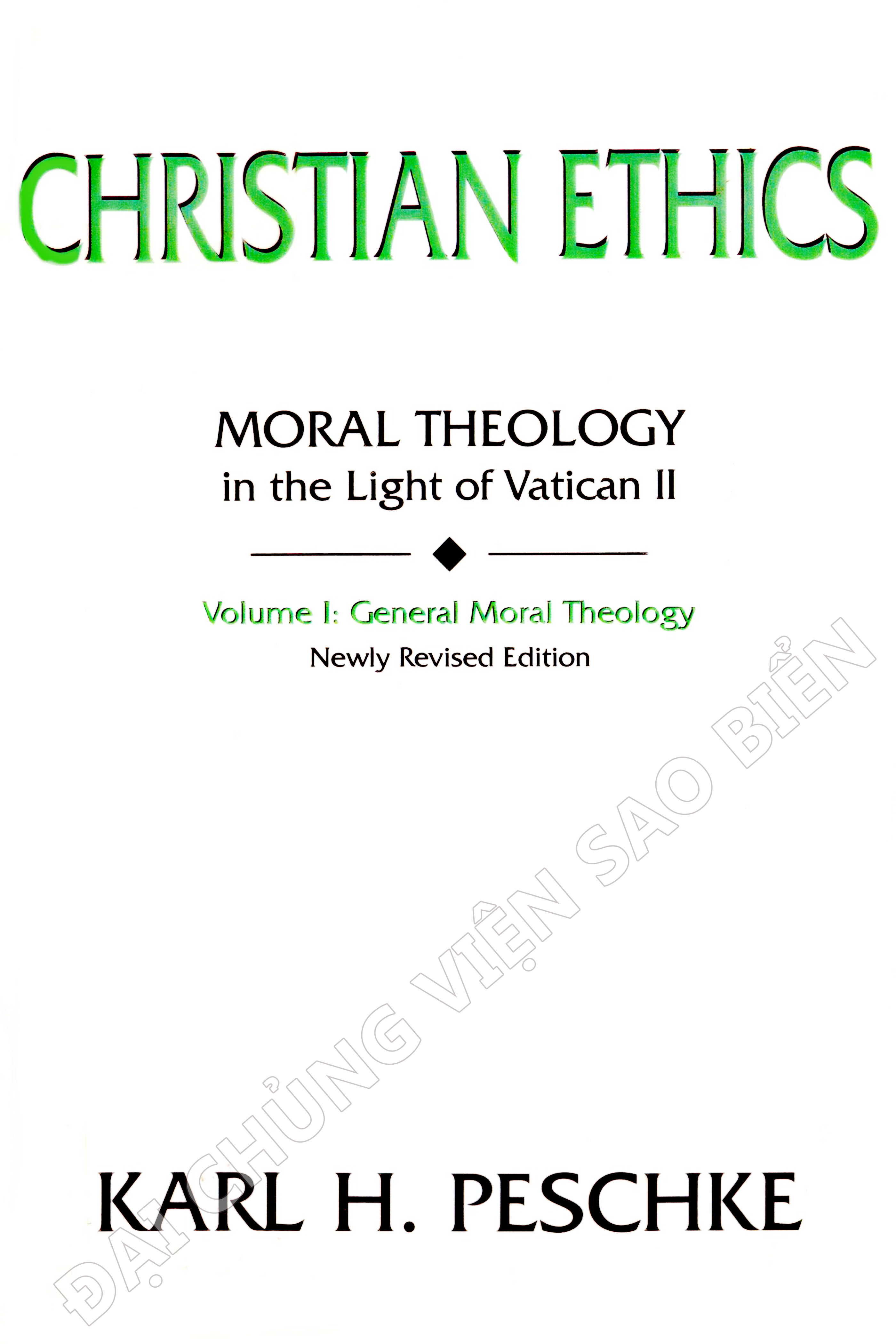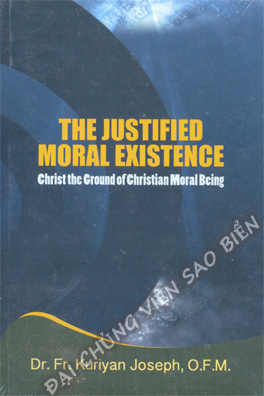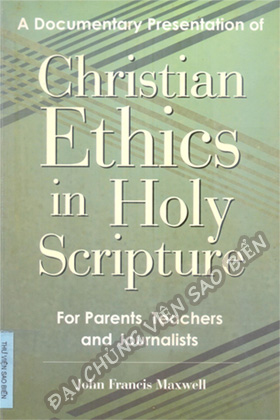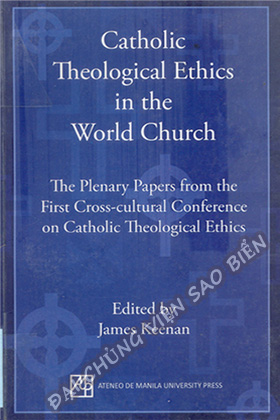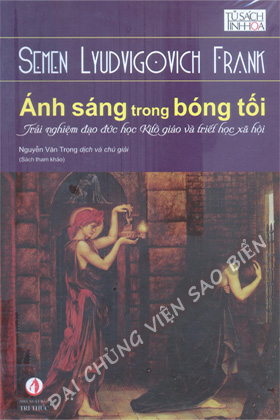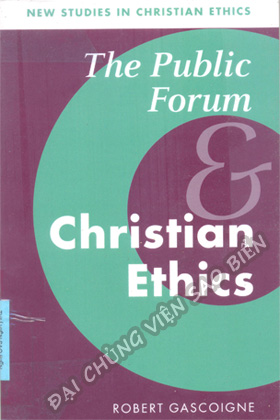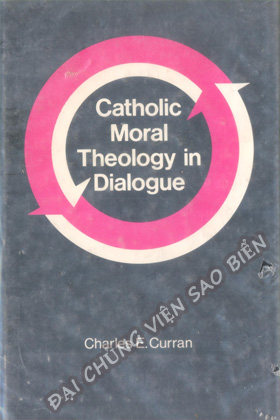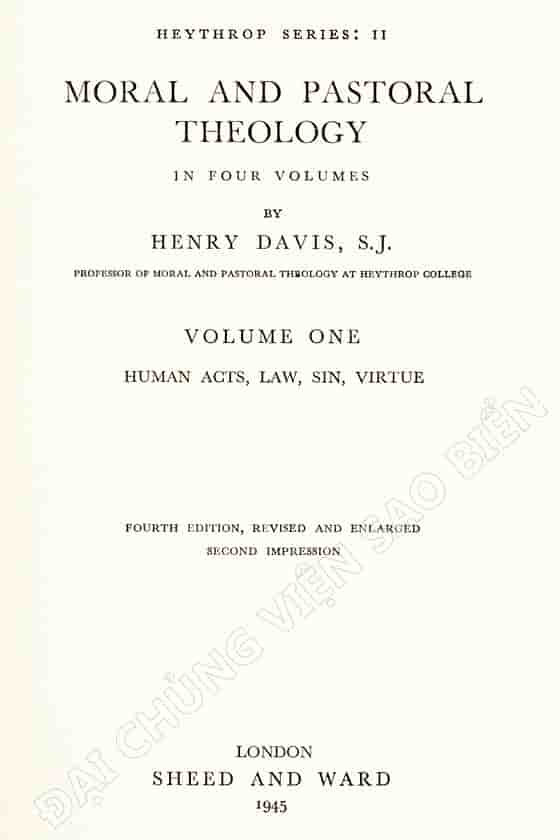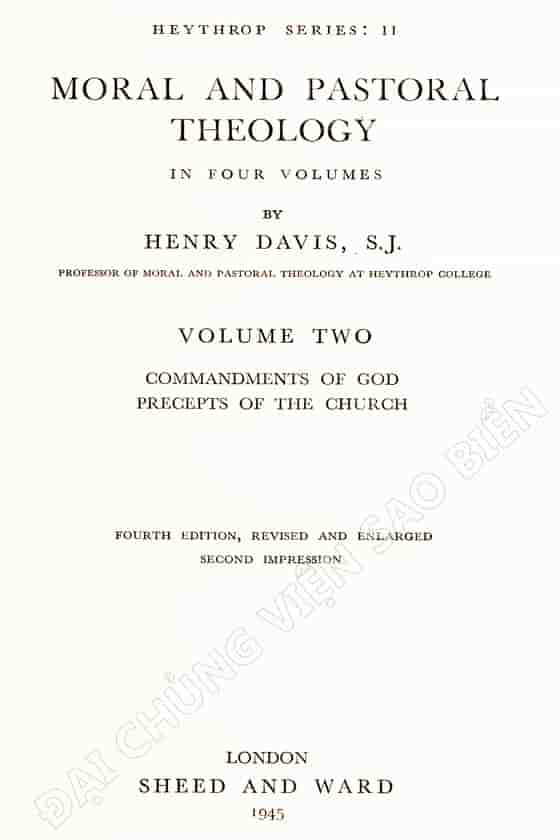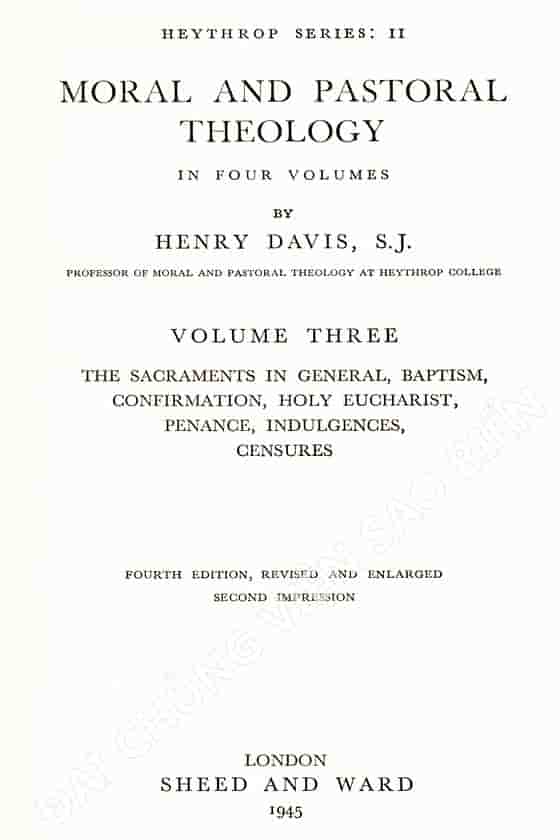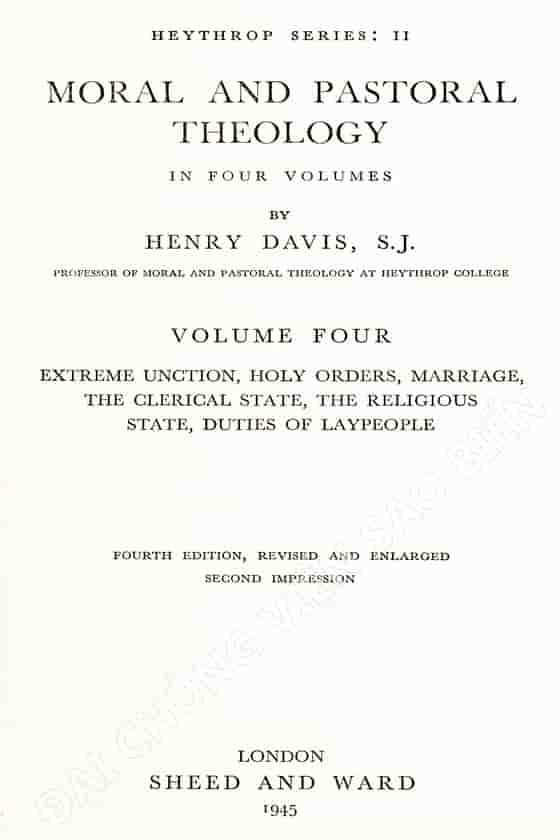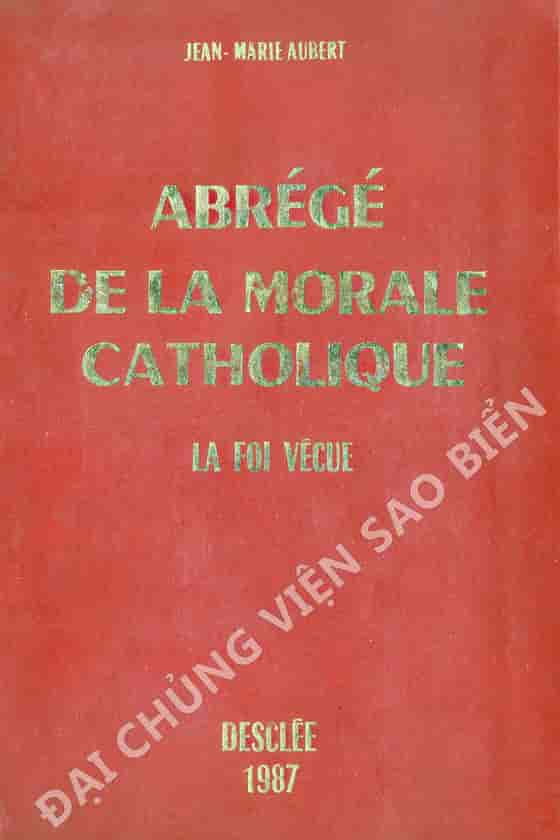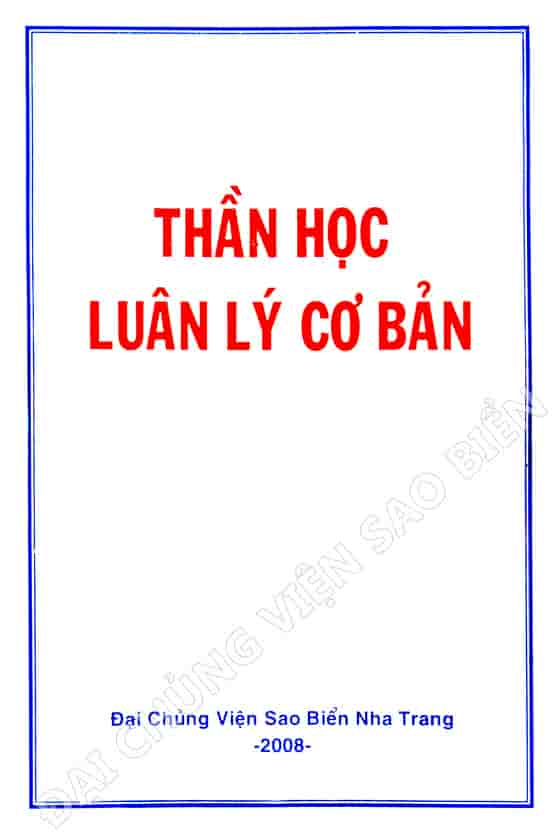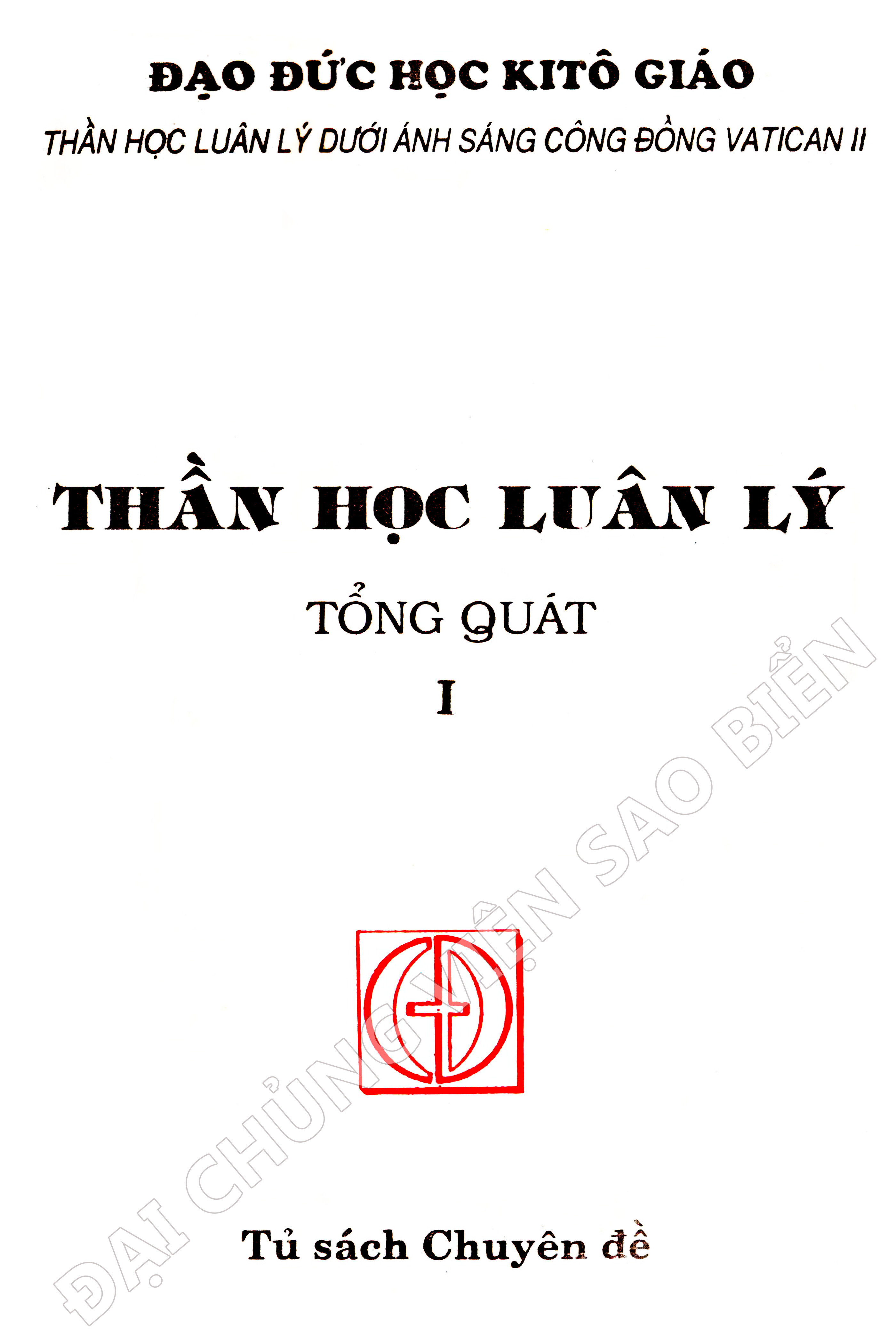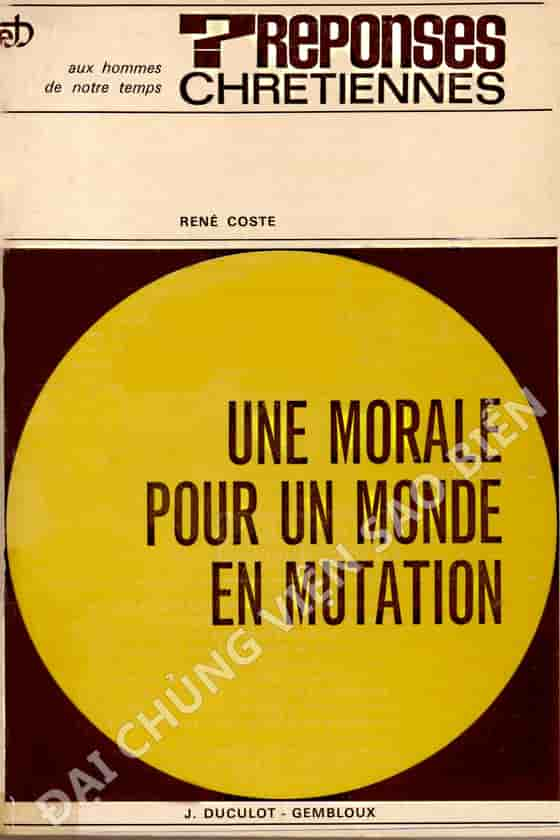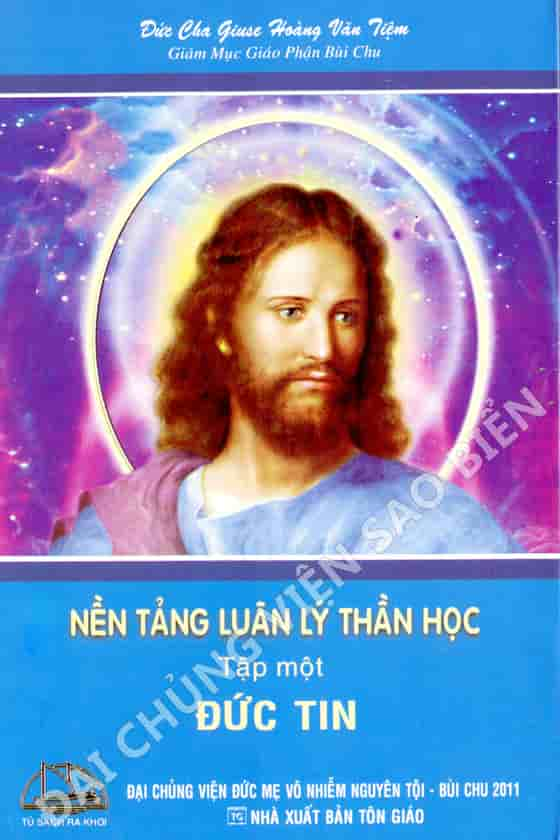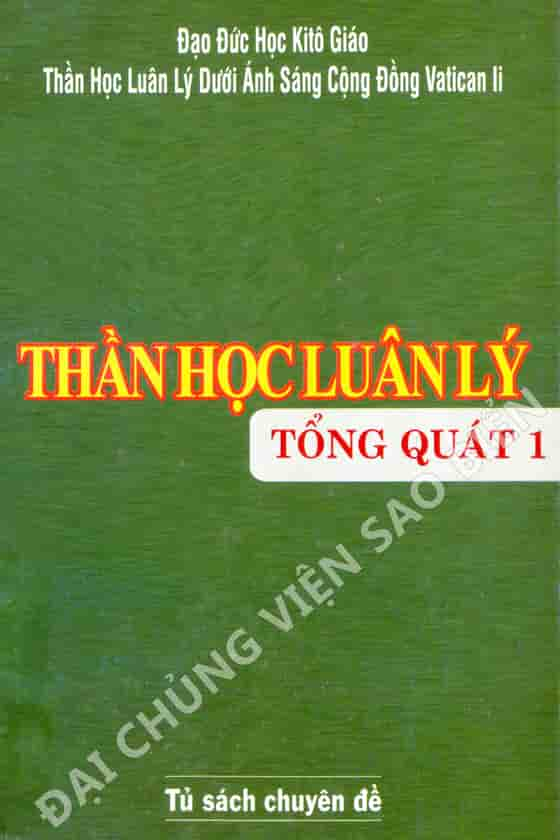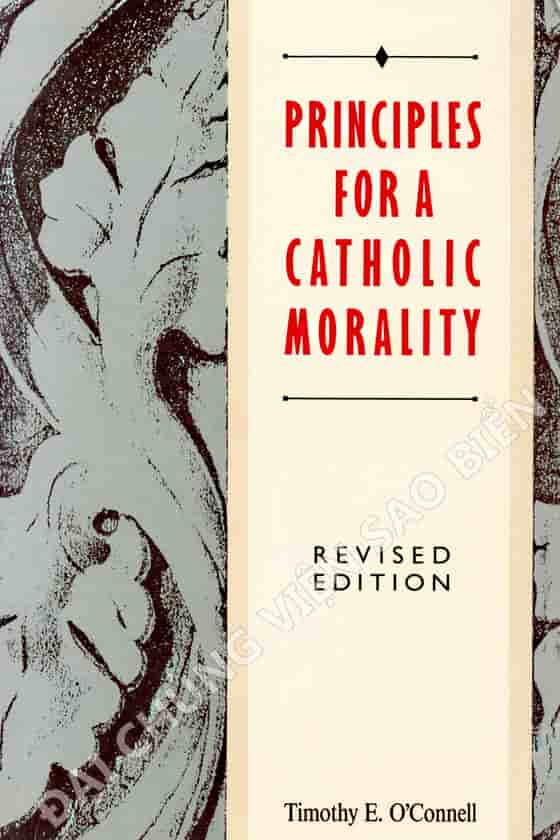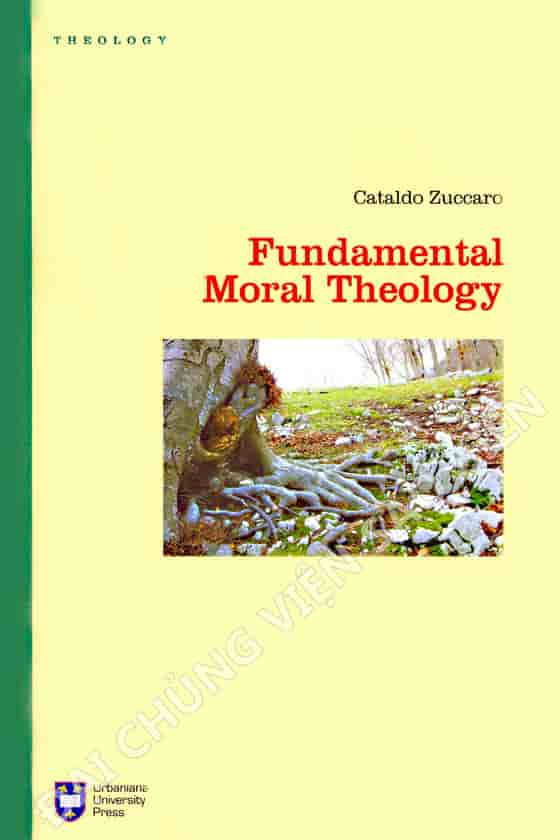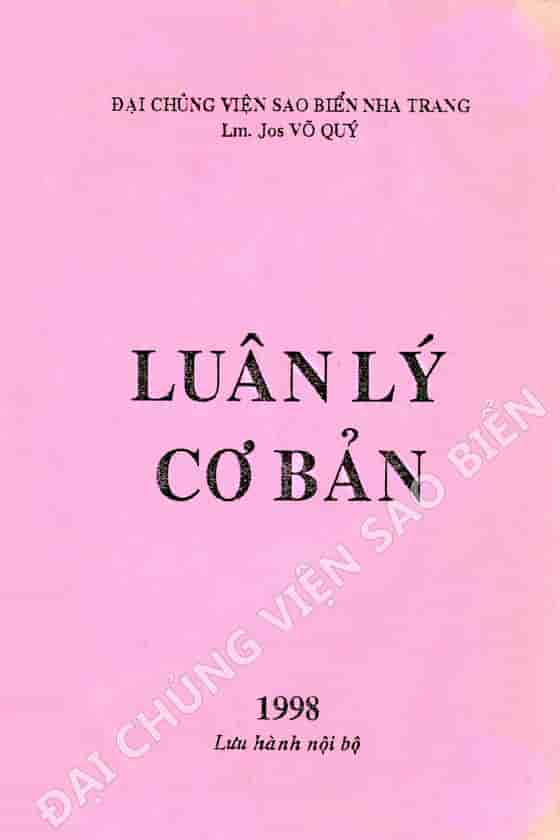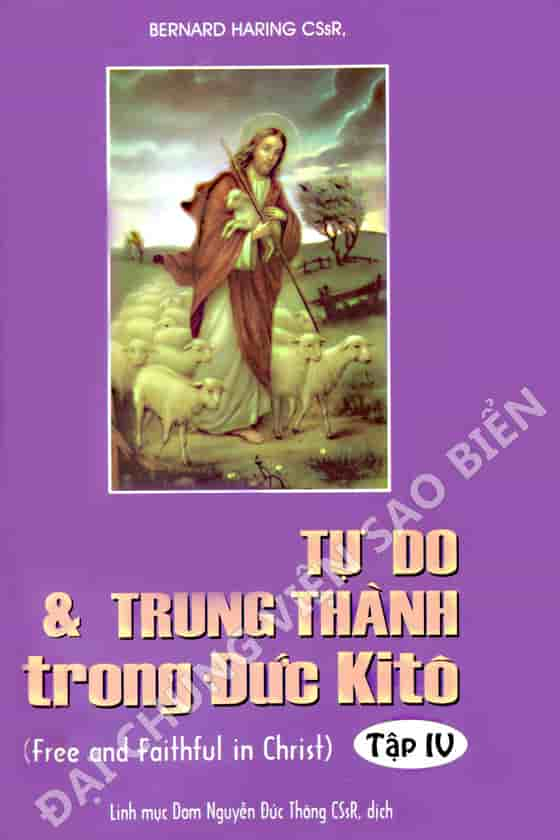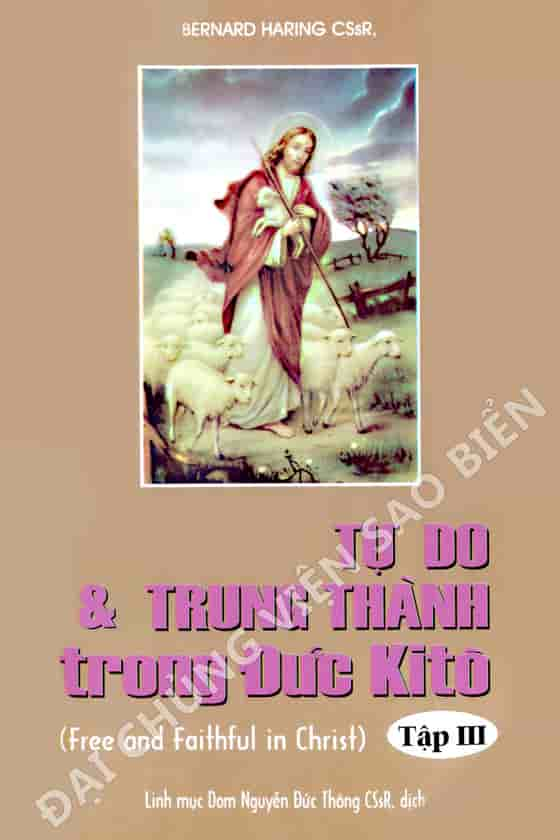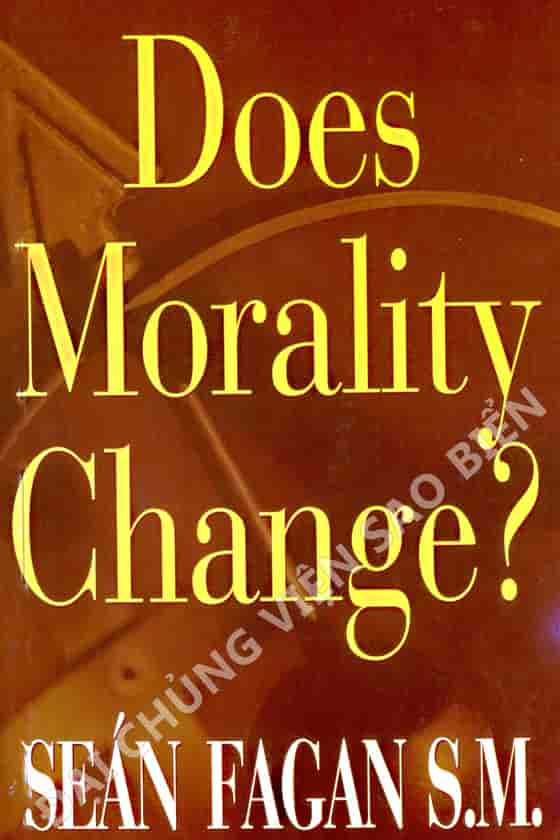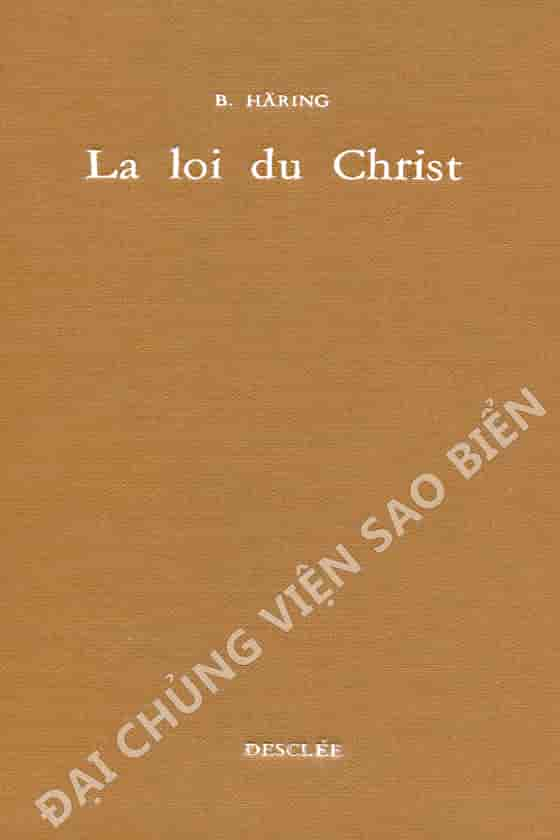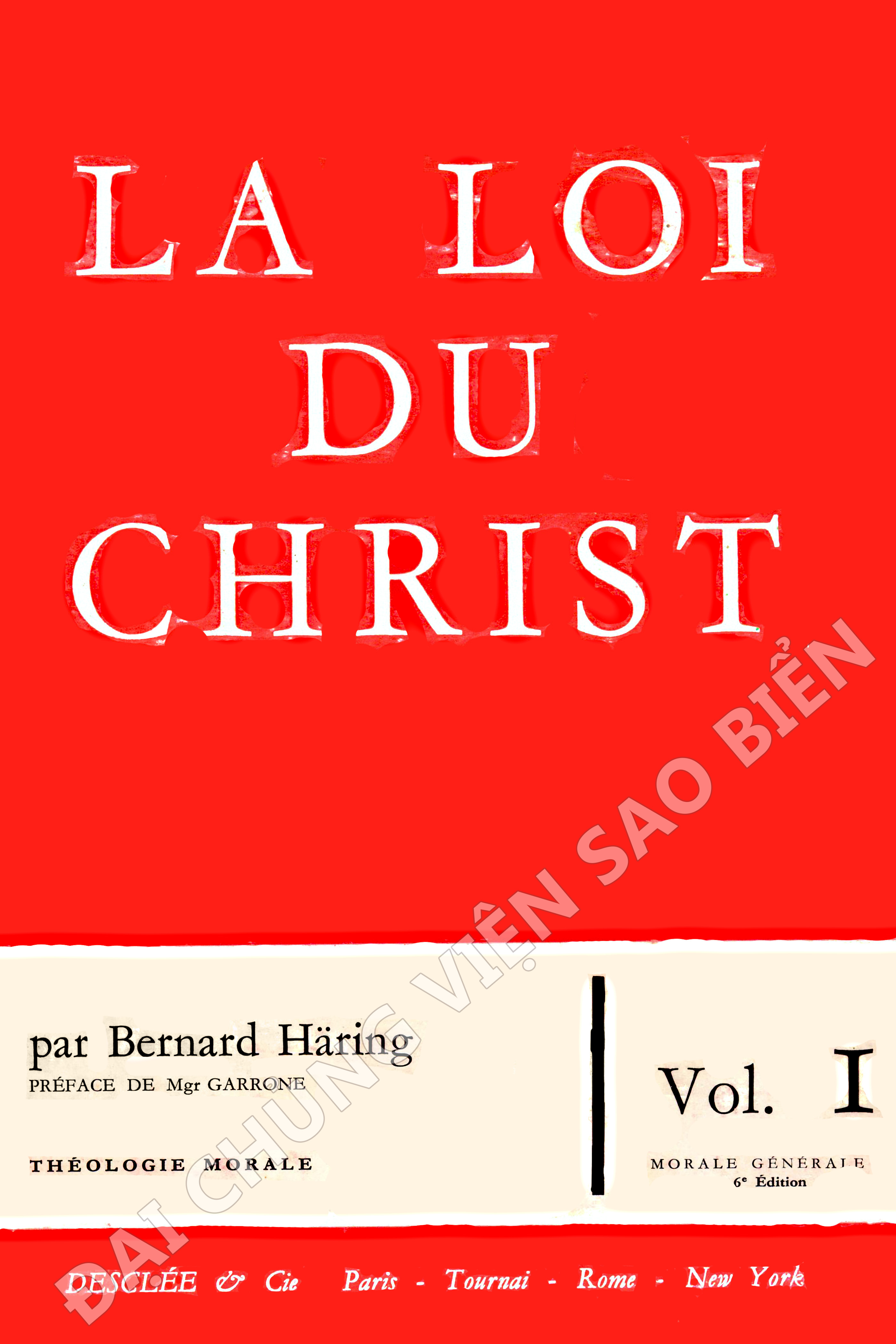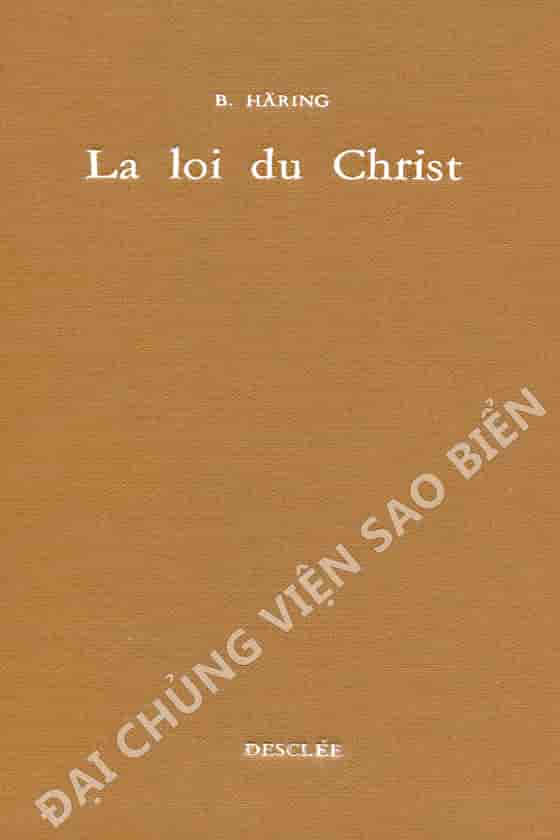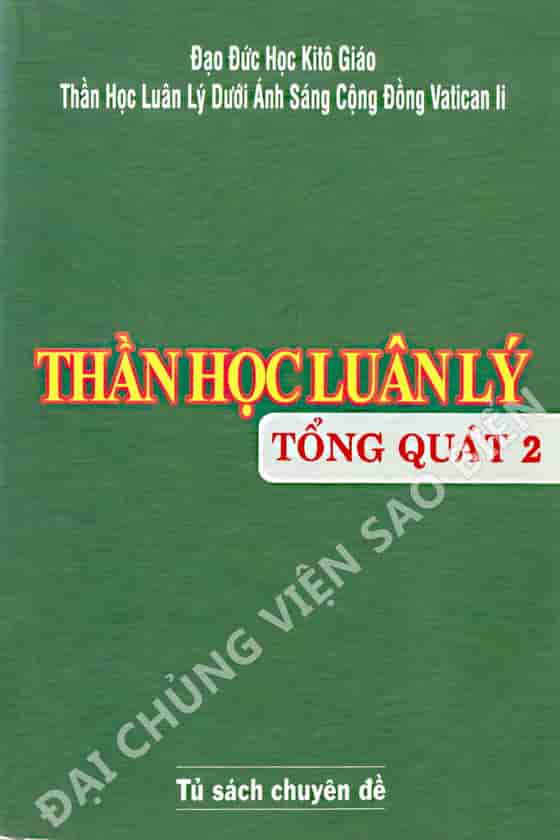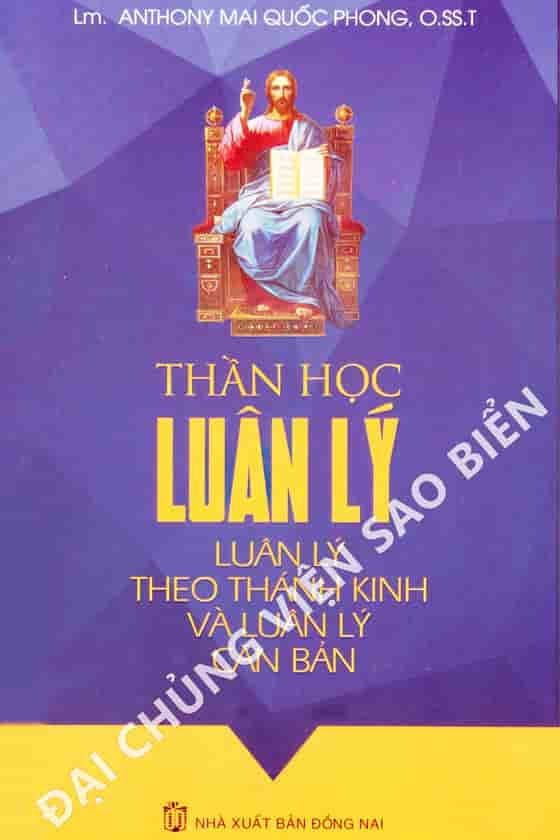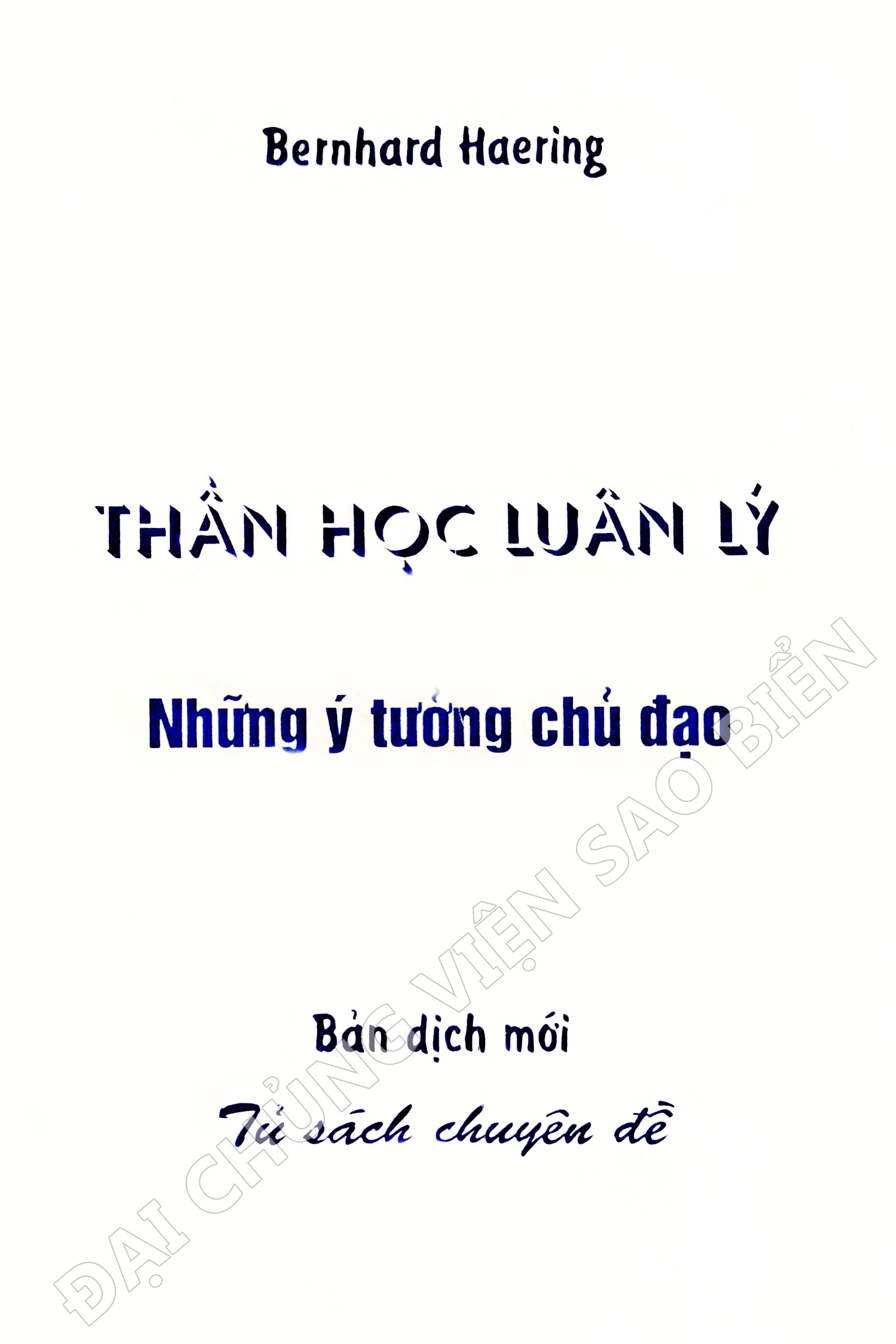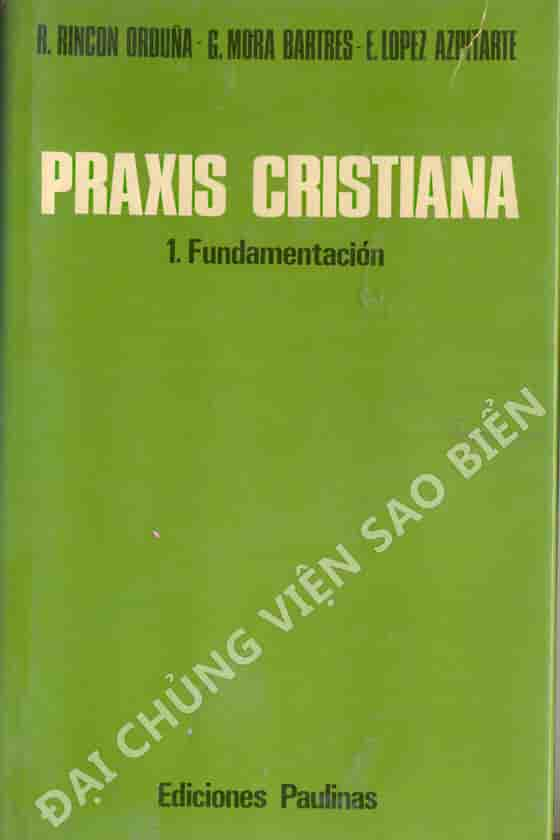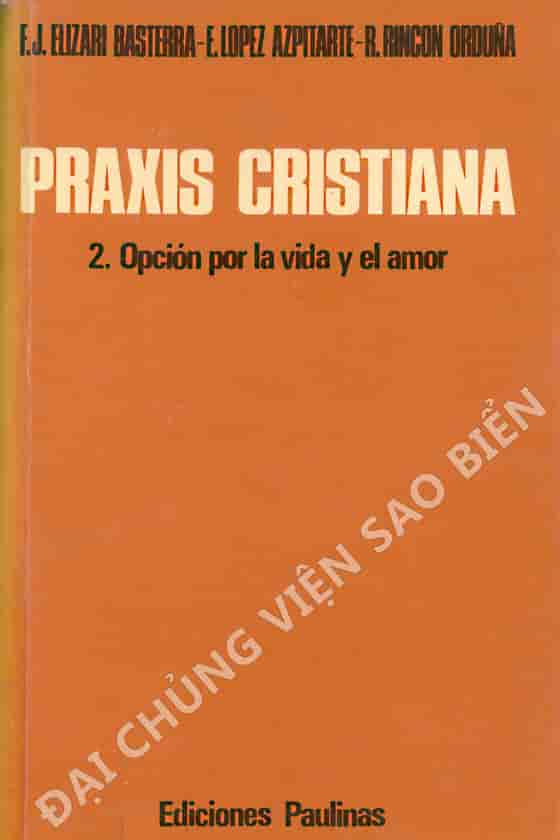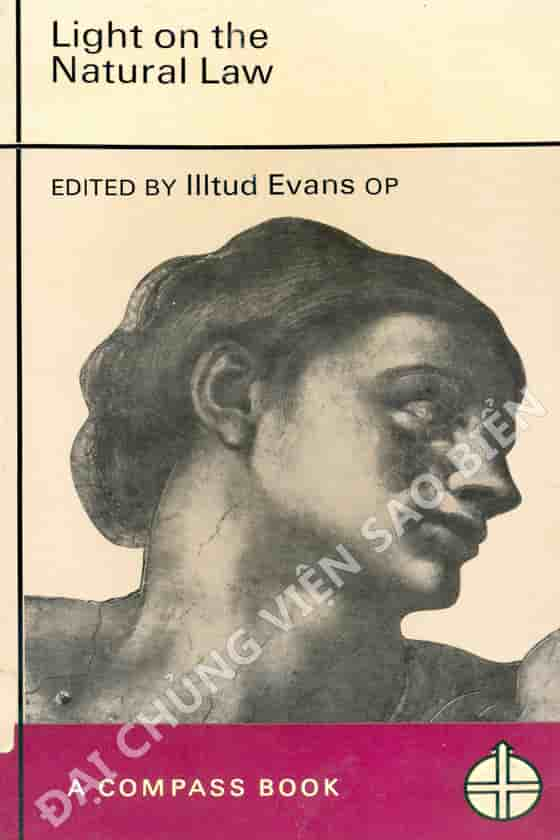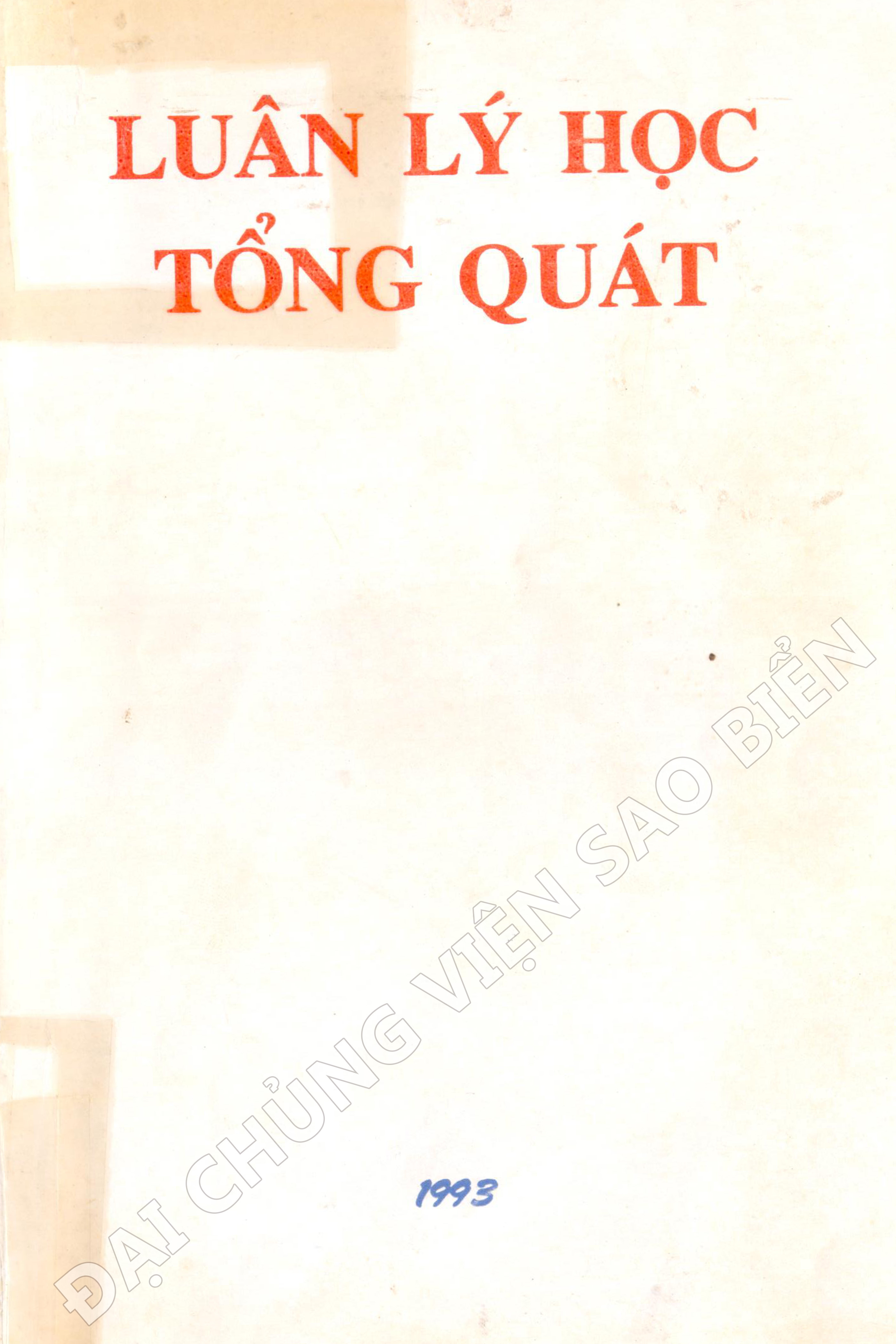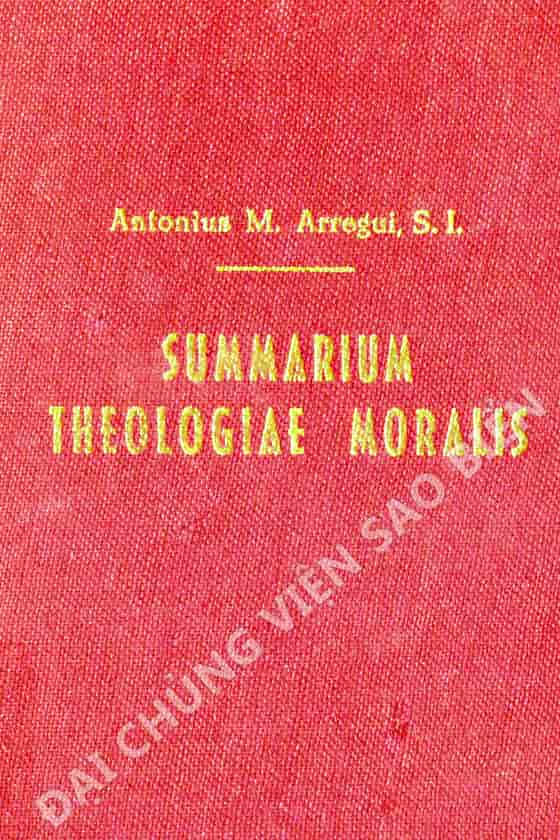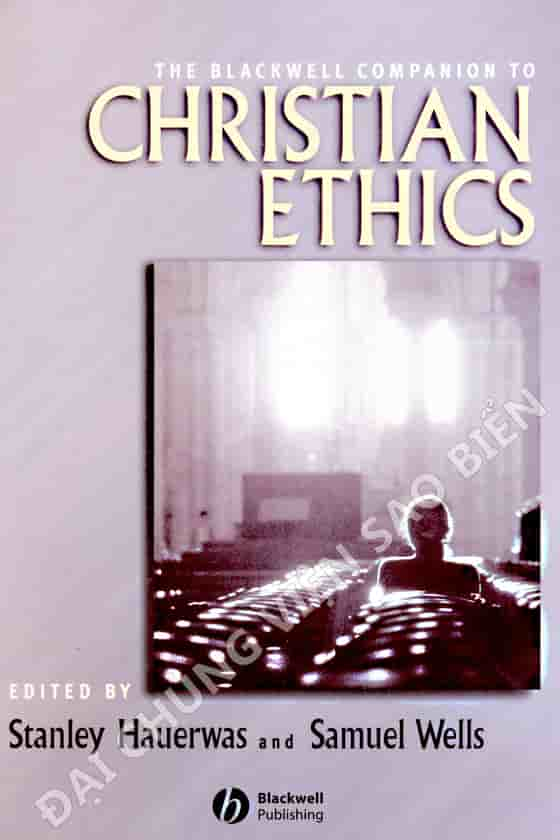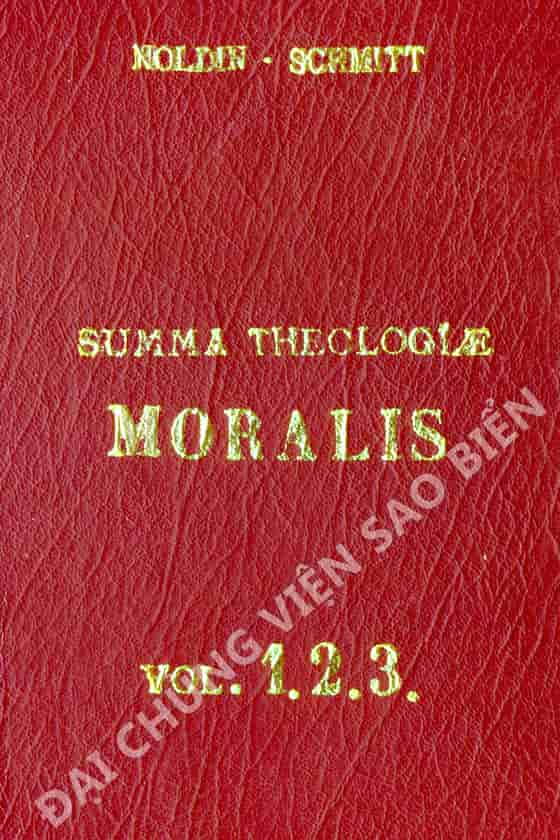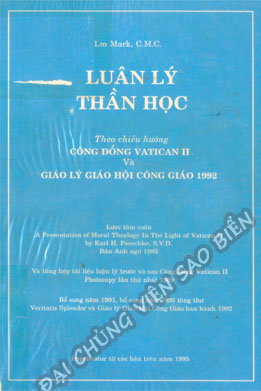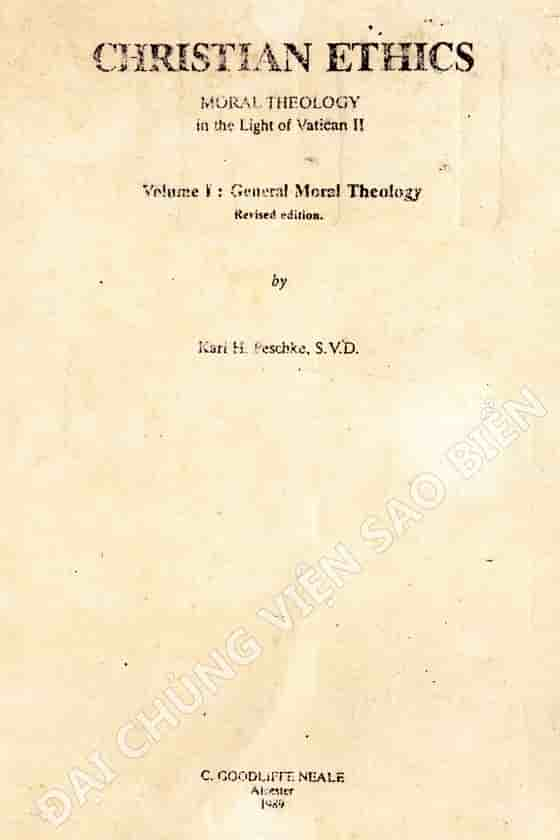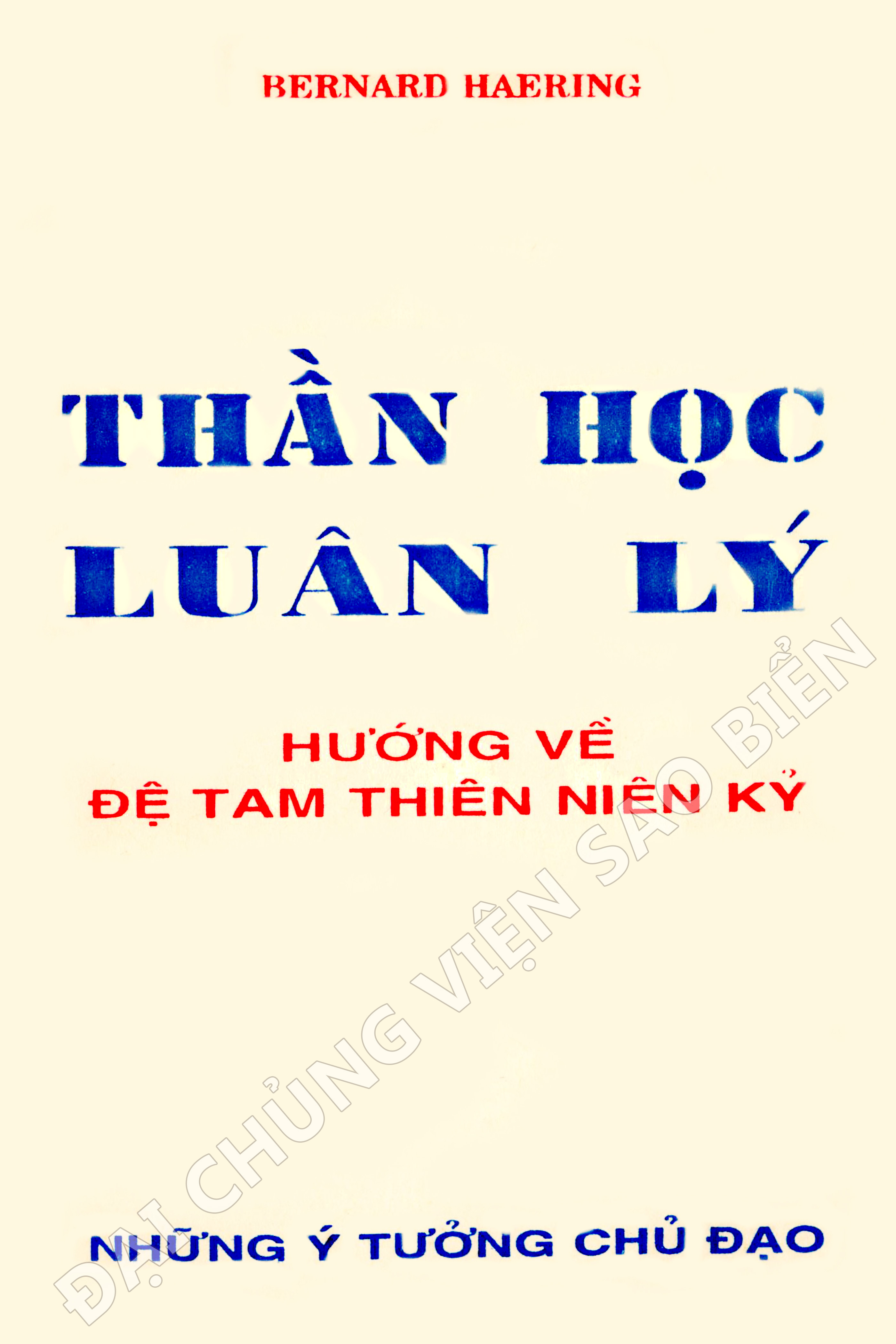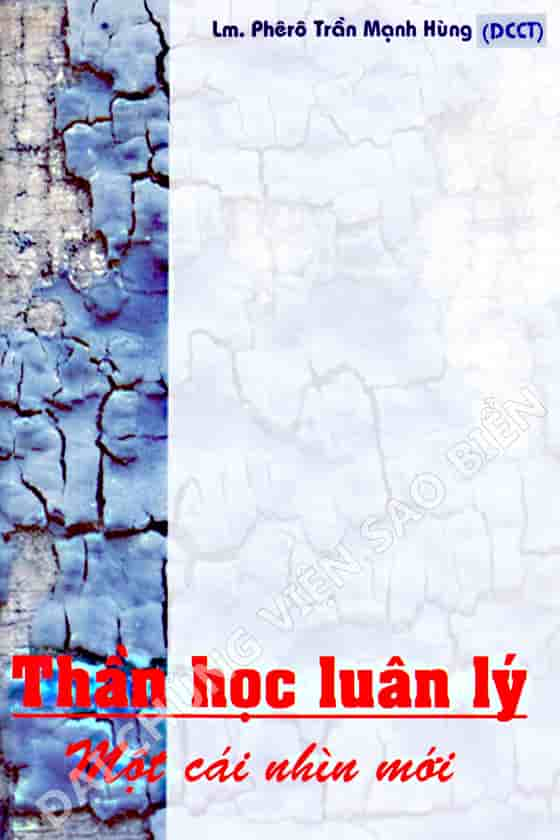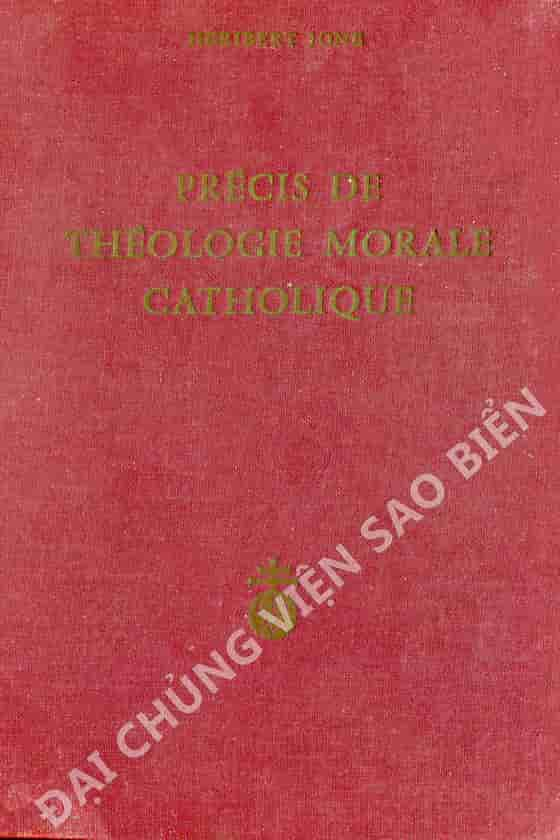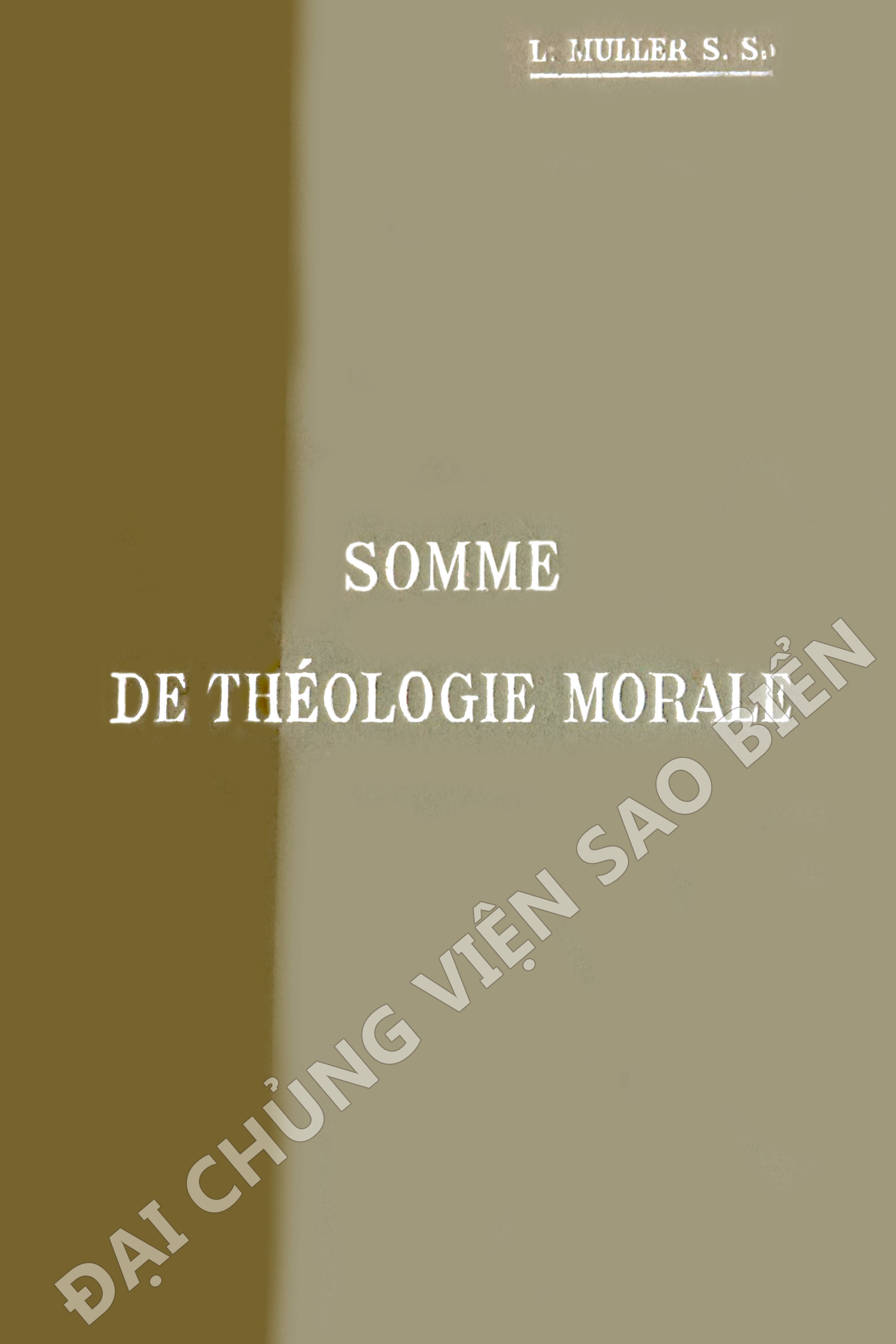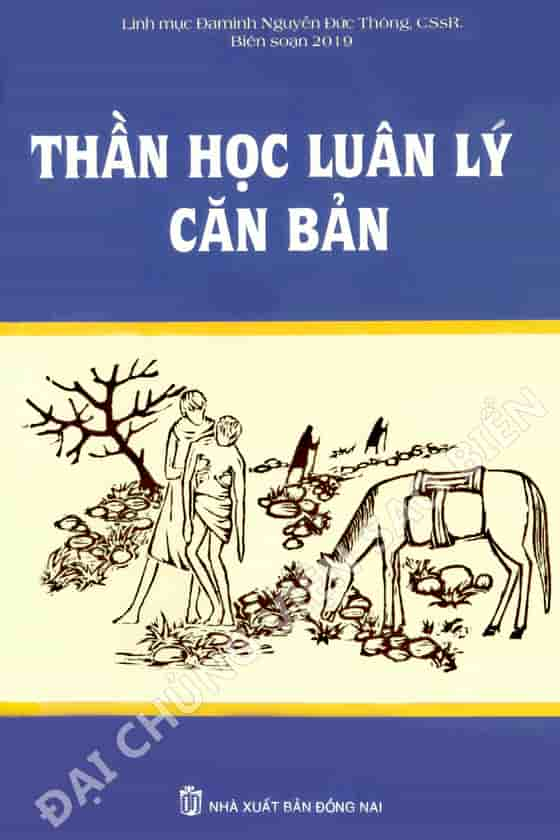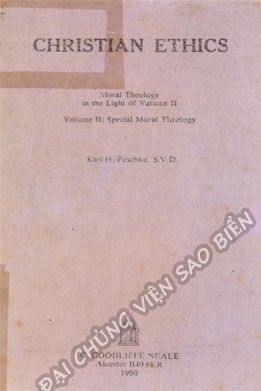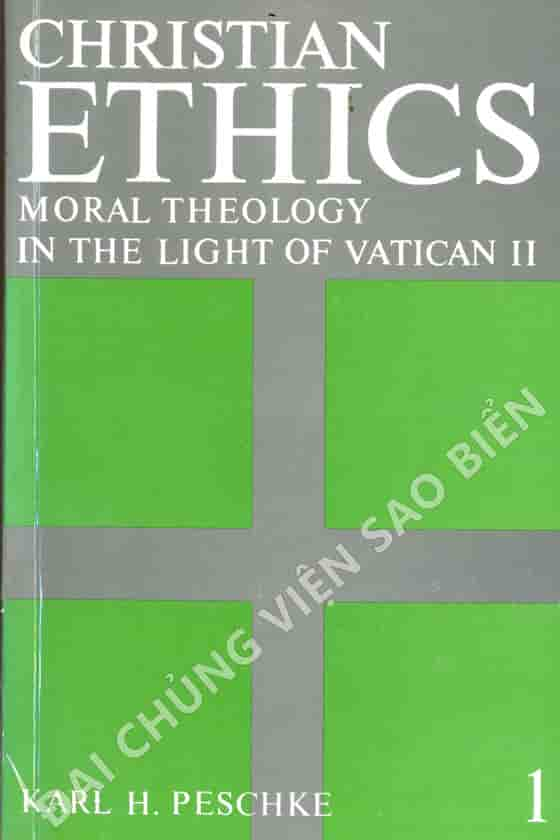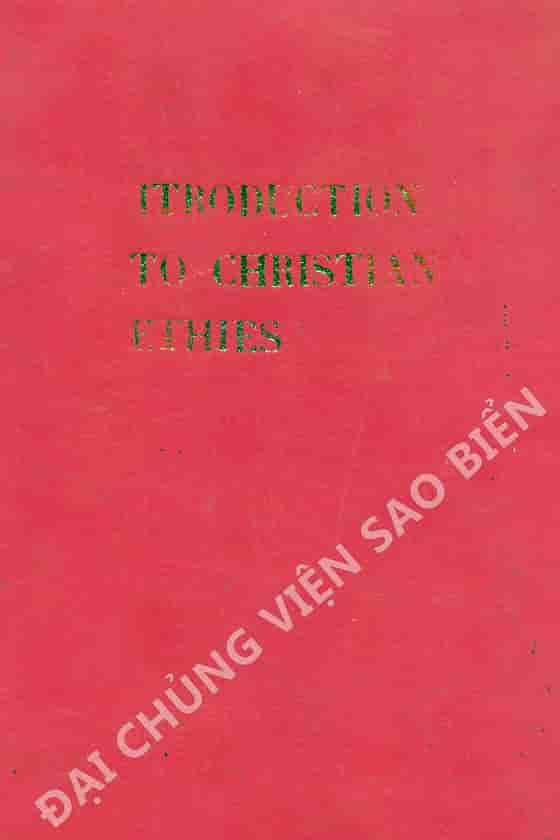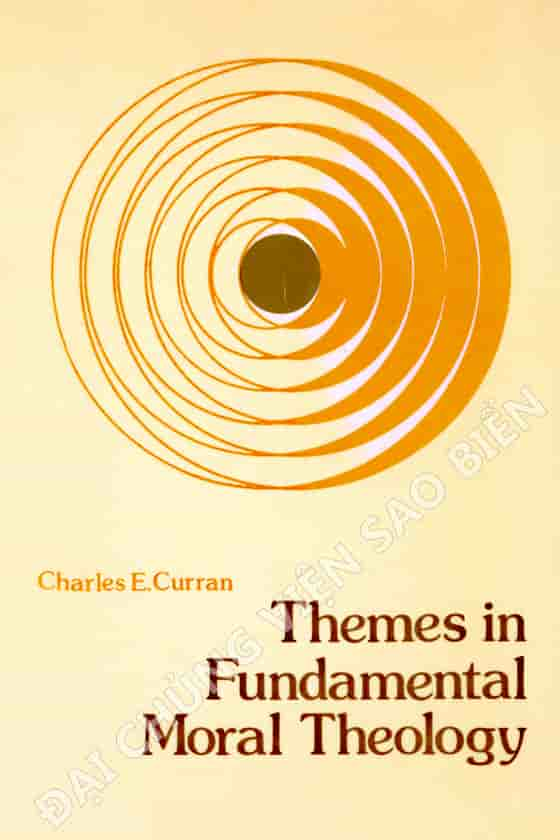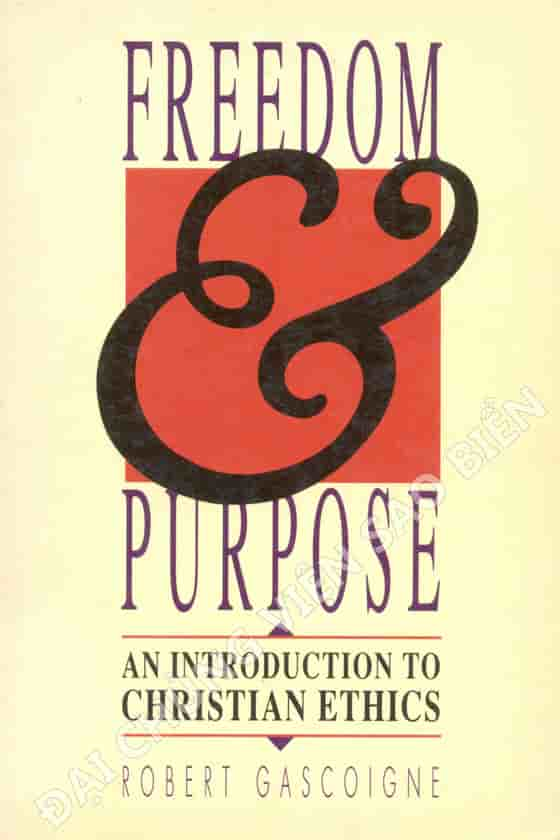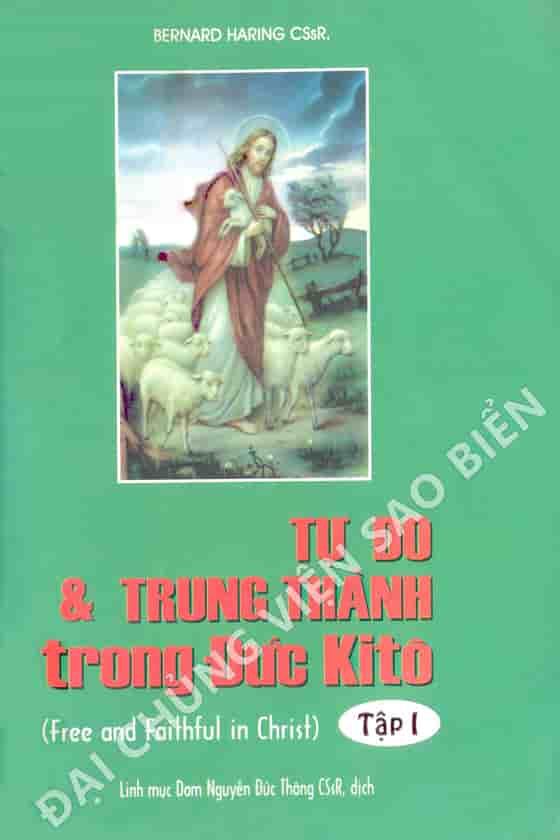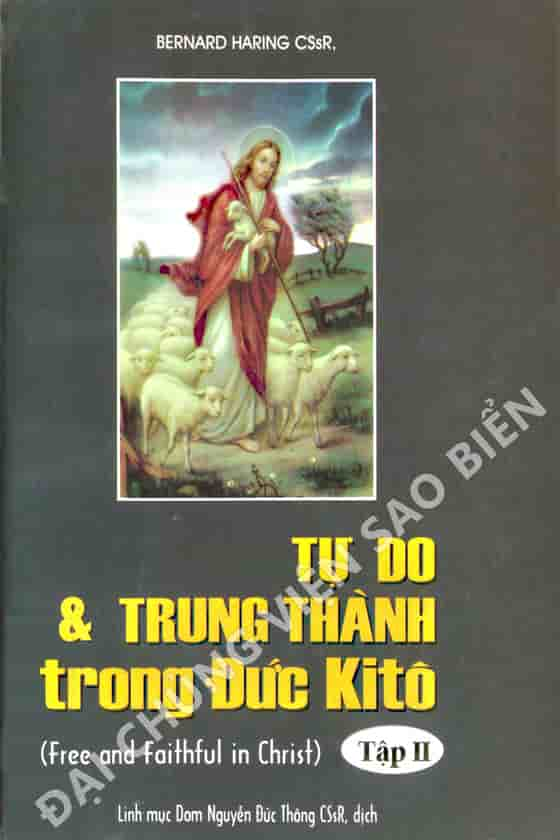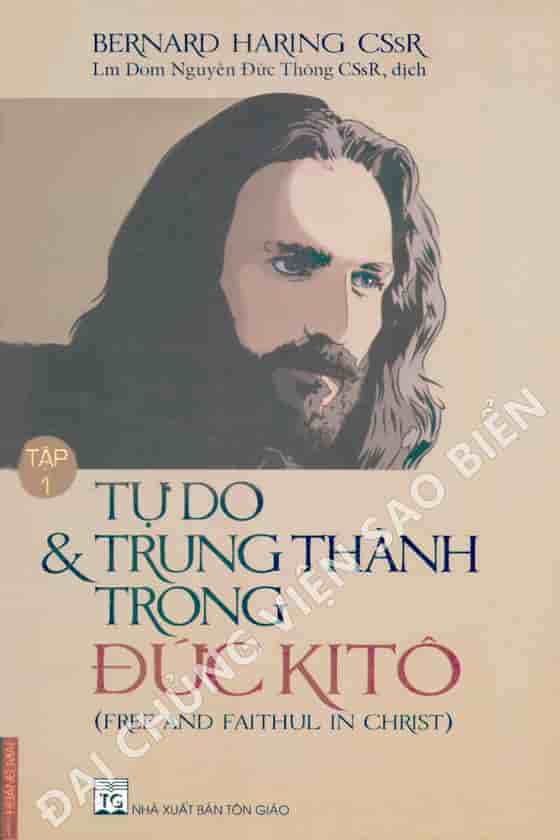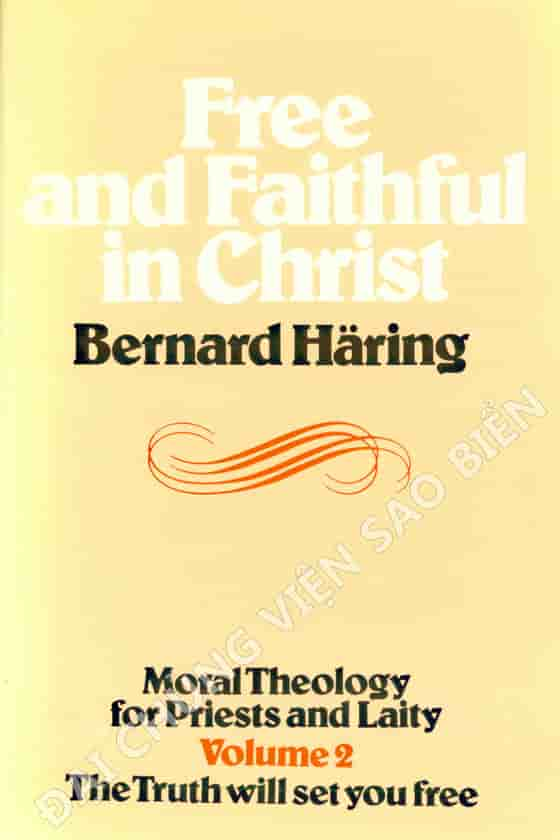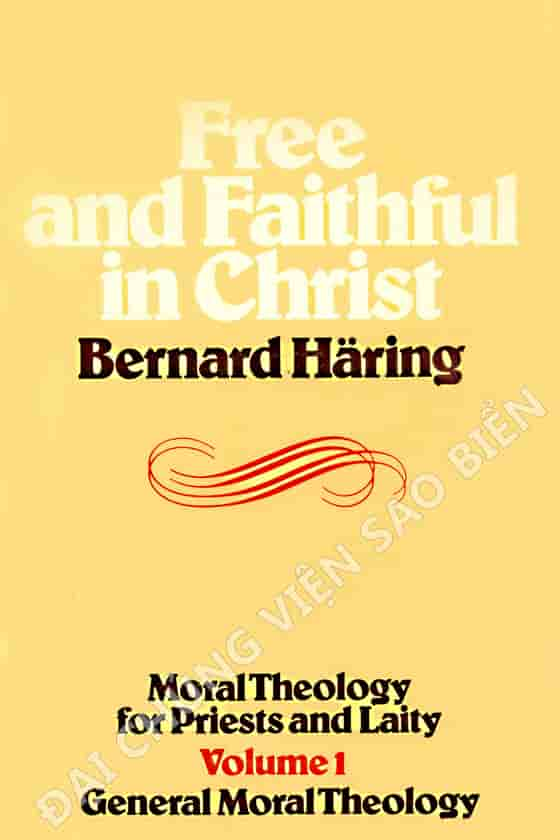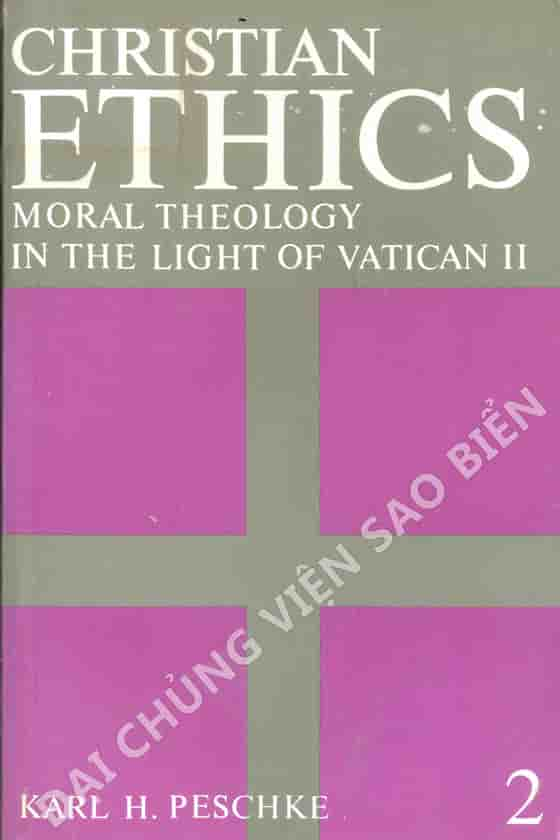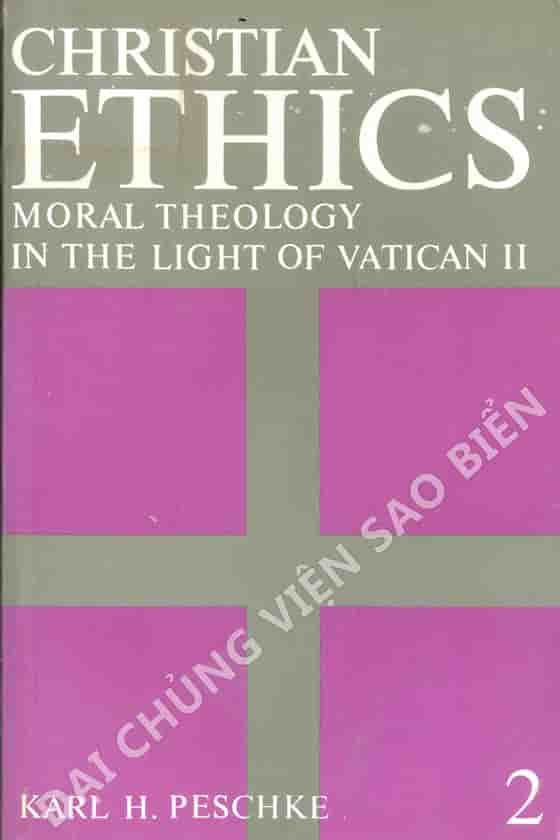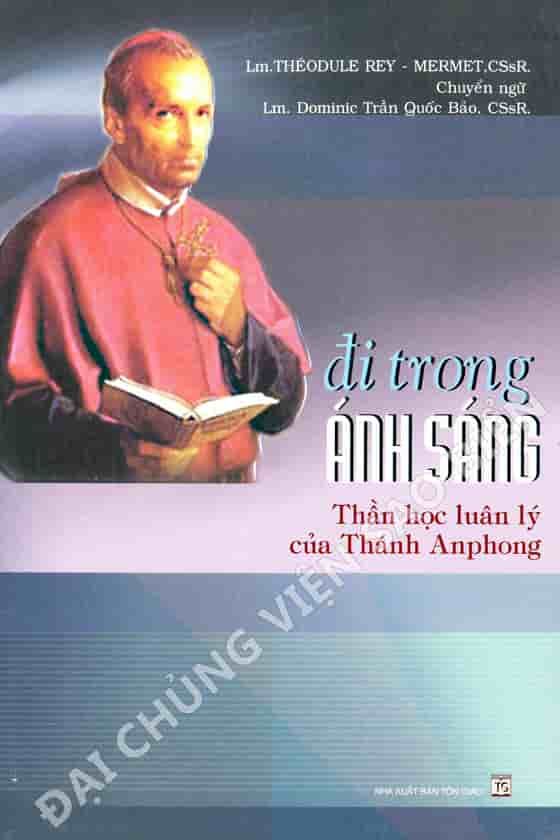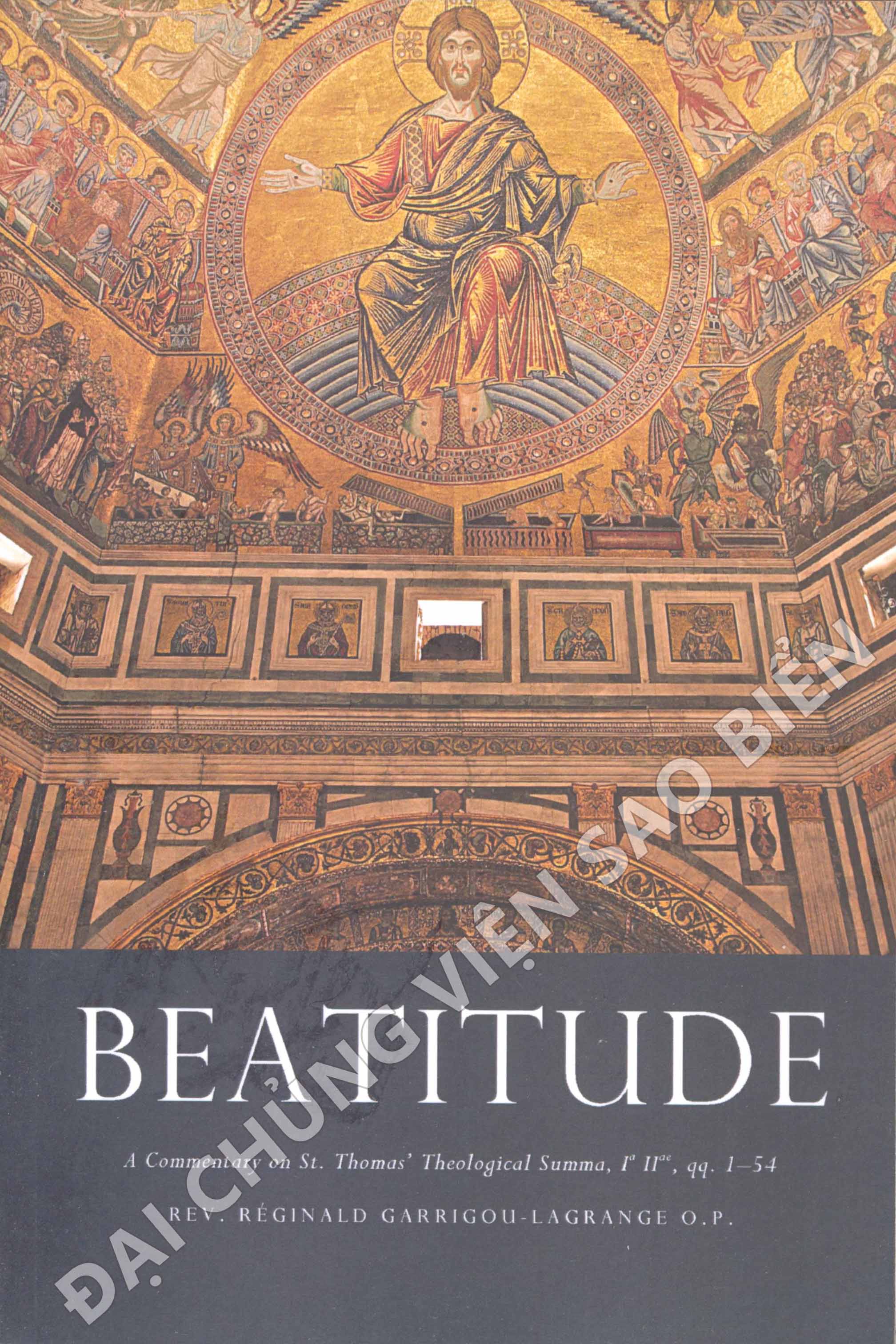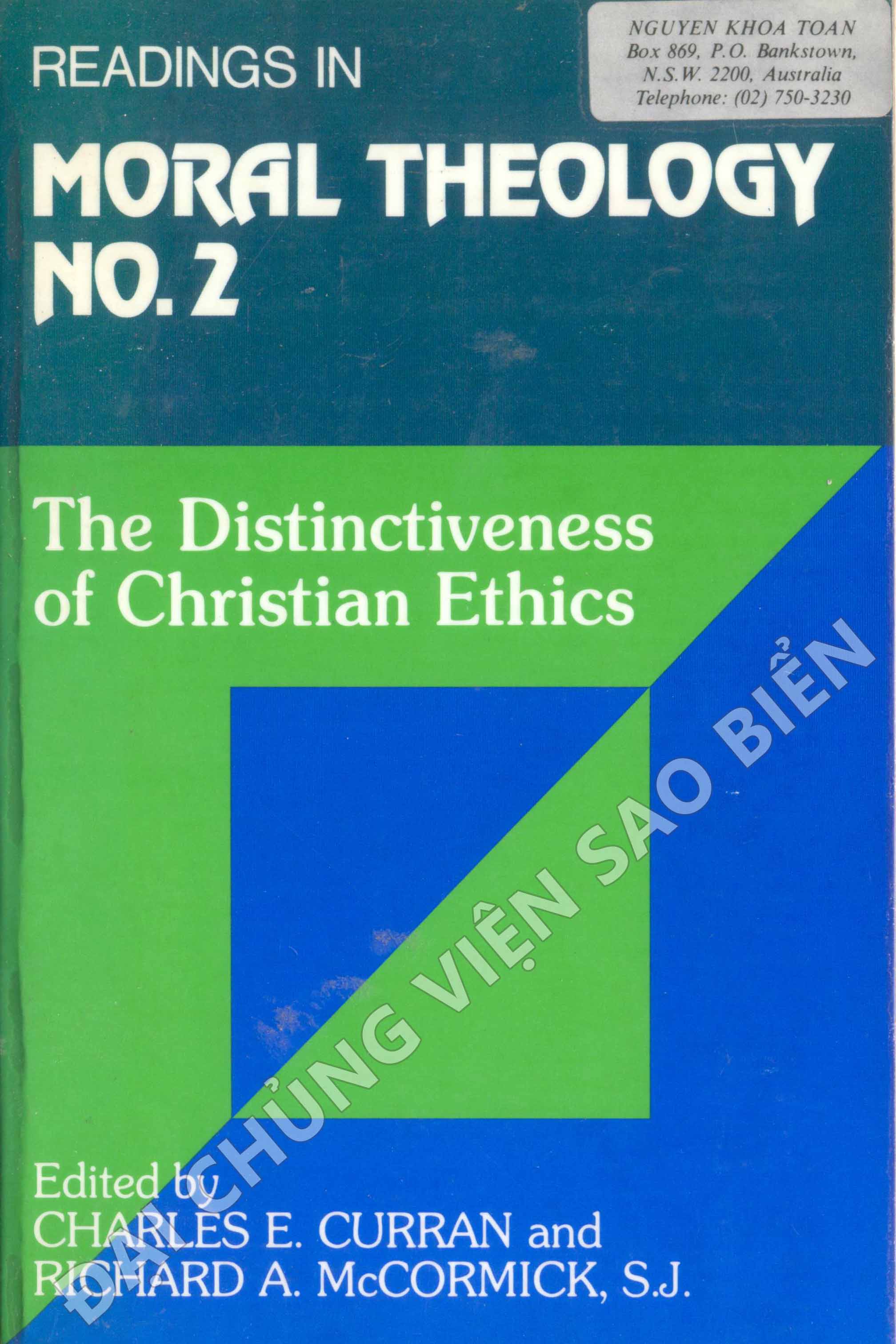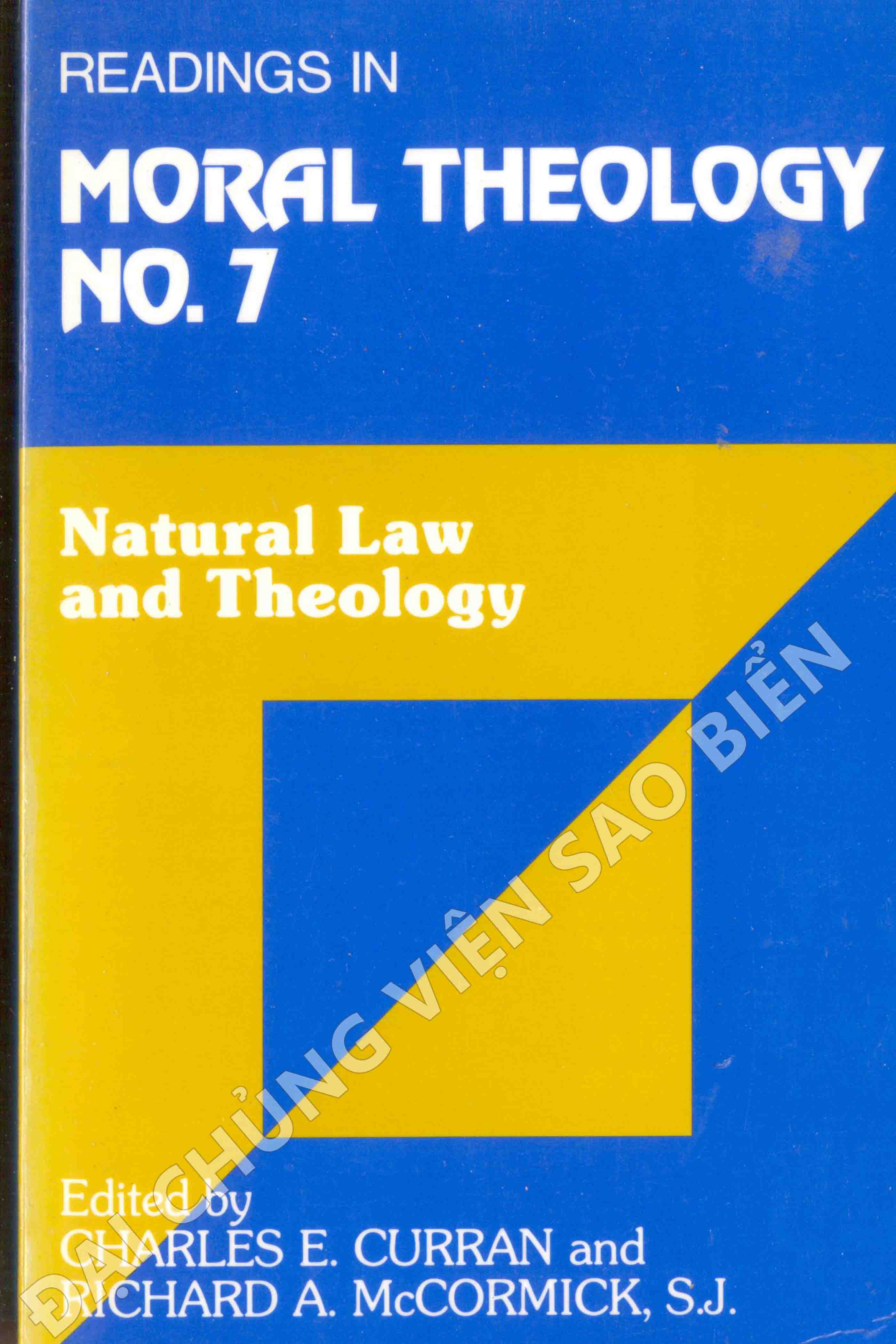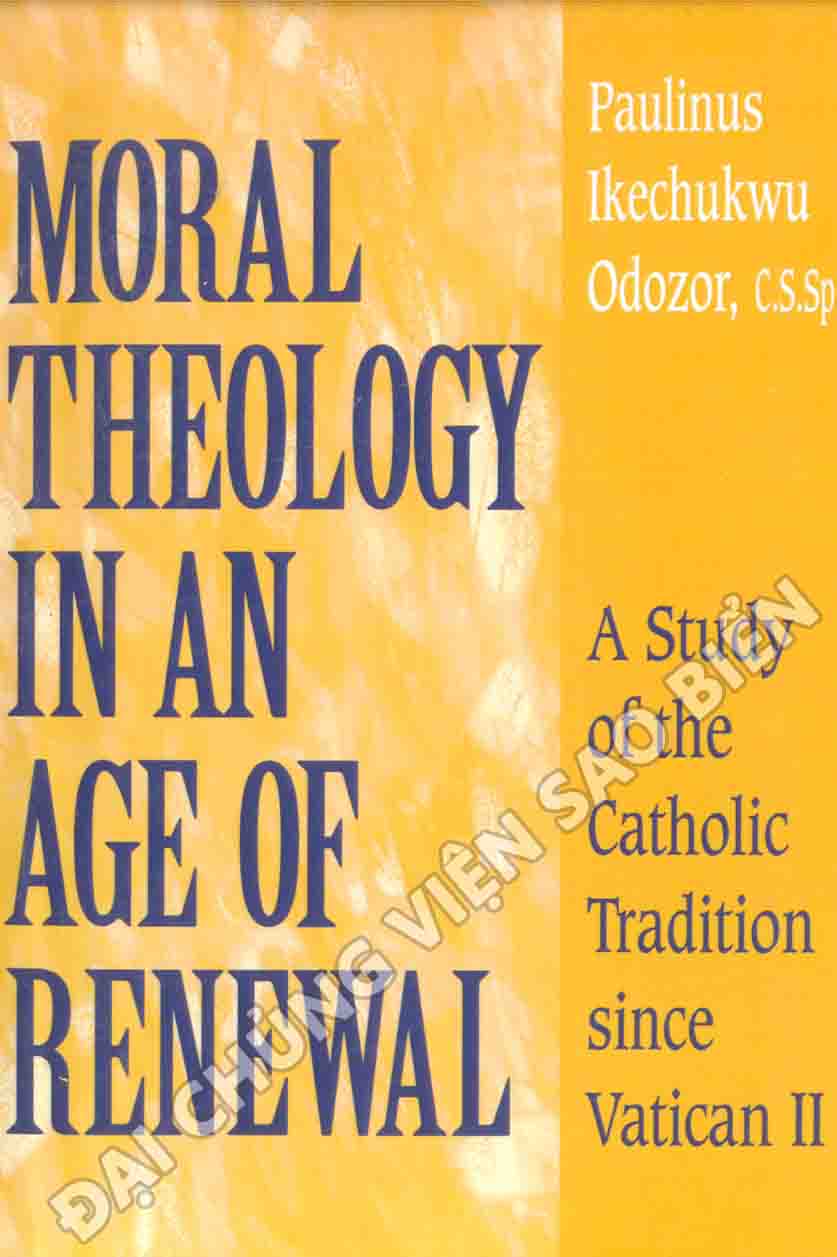| Abbreviations |
viii |
| Preface |
1 |
| Introduction |
3 |
| Chapter 1: NATURE OF MORALITY AND ITS ULTIMATE END |
13 |
| A. Responsive character of Christian morality |
14 |
| l. Holy Scripture |
14 |
| 2. Liturgy |
17 |
| 3. Christian theology |
18 |
| B. The ultimate purpose of the moral demand |
21 |
| I. Temporal happiness and welfare as ultimate purpose: eudaemonism, utilitarianism |
23 |
| II. Ethics of self-perfection and temporal progress |
29 |
| III. Morality for its own sake |
32 |
| l. Kantian ethics |
32 |
| 2. Ethics of values |
36 |
| IV. God's glory and kingdom as the ultimate purpose: theonomous ethics |
39 |
| 1. Teaching of Holy Scripture |
40 |
| 2. Theological reflection |
44 |
| V. Salvation and the moral demand |
48 |
| 1. Role of salvation in Holy Scripture |
48 |
| 2. Role of salvation in theologic11lthought |
50 |
| C. The categorical character of the moral demand |
53 |
| D. Openness to God's guidance and discernment of spirits |
57 |
| Chapter II: NATURE OF THE MORAL LAW |
64 |
| A. Notion of moral law |
65 |
| 1. Concept of moral law |
65 |
| 2. Natural, revealed and human law |
66 |
| B. Law of God in Holy Scripture |
68 |
| I. Law of the Old Testament |
68 |
| II. Moral law in the New Testament |
75 |
| III. Distinctiveness of Christian ethics |
84 |
| IV. Moral autonomy and theonomous ethics |
92 |
| C. Natural moral law |
95 |
| I. Concept of natural law |
97 |
| l. The traditional concept |
97 |
| 2. The theological controversy over natural law |
101 |
| 3. Revised concept of natural law |
105 |
| II. Properties of natural law |
106 |
| 1. Universality of natural law |
106 |
| a) Extent of the universal knowledge of natural law |
106 |
| b) Uncertainties in the teaching of the Church |
109 |
| 2. Immutability and dynamics |
111 |
| 3. Indispensability of natural law |
113 |
| 4. Personal and situational character |
115 |
| III. Existence and ultimate basis of natural law |
117 |
| I. Natural law as reflection of God's eternal decrees |
118 |
| 2. Natural law as based on the order of being |
120 |
| a) General implication of the axiom "action follows being" |
120 |
| b) Application to human activity |
121 |
| c) Hume's critique and an answer to it |
123 |
| 3. Deontological and teleological foundation of moral norms |
126 |
| D. Human law |
135 |
| I. Notion and necessity of human law |
135 |
| 1. Concept and properties of human law |
135 |
| 2. Attitude of the New Testament to human law |
138 |
| 3. Necessity of human law according to reason |
140 |
| II. Object and substantive justice of the law |
141 |
| III. Moral obligation of the law |
146 |
| IV. Procedural justice and epikeia |
149 |
| 1. Procedural justice |
149 |
| 2. Epikeia |
152 |
| V. Cessation of obligation and of the law itself |
155 |
| Chapter III: CONSCIENCE |
158 |
| A. Concept and nature of Conscience |
159 |
| I. Holy Scripture on conscience |
159 |
| II. Conscience as moral faculty |
163 |
| 1. Views outside of Christian theology |
163 |
| 2. Concept of conscience in theology |
166 |
| 3. Conscience as subject to being |
170 |
| III. Conscience as practical moral judgment |
172 |
| 1. Concept of the dictate of conscience |
172 |
| 2. Division of conscience |
174 |
| IV. Stages in the developtment of conscience |
175 |
| B. The binding force of conscience |
179 |
| I. The certain conscience |
179 |
| II. The vincibly erroneous and lax conscience |
183 |
| III. The perplexed conscience |
185 |
| IV. The doubtful conscience |
186 |
| C. Formation of a certain conscience by means of reflex principles |
188 |
| I. Nature and varieties of reflex principles |
188 |
| II. The systems of probability |
190 |
| D. Freedom and commitment of conscience |
195 |
| 1. The right to freedom of conscience |
195 |
| 2. Conscience and the civil law |
197 |
| 3. Conscience and the teaching office of the Church |
201 |
| 4. Duty to form one's conscience |
205 |
| Chapter IV: COMMUNAL ROOTS OF MORAL IDENTITY AND FUNDAMENTAL OPTION |
208 |
| A. Fonnative principles of moral identity |
208 |
| I. The Bible as formative principle of the moral life |
210 |
| 1. The Bible as prime source of Christian identity |
210 |
| 2. Concrete shape of biblical.moral identity |
212 |
| II. The faith community as matrix of moral identity |
216 |
| B. Character formation |
220 |
| C. Basic intention and fundamental option |
223 |
| Chapter V: REALIZATION OF THE MORAL VALUE IN HUMAN ACTS |
228 |
| A. Concept and nature of the human act |
228 |
| I. Concept of the human act |
228 |
| II. Divisions of the voluntary act and effect |
230 |
| III. The presupposition of freedom |
232 |
| 1. Freedom of will in Holy Scripture |
233 |
| 2. Theological reflection |
236 |
| B. Obstacles to humari acts |
238 |
| I. Impairments of required knowledge |
238 |
| 1. lgnorance |
239 |
| 2. Error |
241 |
| 3. Inattention |
242 |
| II. Impairments of free consent |
242 |
| 1. Passion |
242 |
| 2. Fear and social pressure |
244 |
| 3. Violence |
247 |
| 4. Dispositions and habits |
248 |
| C. Sources defining the morality of human acts |
250 |
| I. The object |
251 |
| II. The circumstances |
254 |
| III. The end intended by the agent |
256 |
| IV. Moral significance of the external act |
260 |
| D. Preference rules and problems of the lesser evil |
261 |
| I. Preference rule |
262 |
| II. Imputability of indirectly willed effects |
265 |
| 1. Imputability of indirectly willed effects in general |
265 |
| 2. The principle of double effect |
267 |
| 3. Problems and controversies |
269 |
| III. Cooperation in the wrong deeds of others |
277 |
| IV. The ethical compromise |
281 |
| Chapter VI: THE MORALLY BAD ACTION: SIN |
285 |
| A. Nature of sin |
287 |
| I. Biblical delineation of sin |
288 |
| II. Threefold dimension of sin |
291 |
| 1. The personal dimension of sin |
292 |
| 2. The social dimension of sin |
293 |
| 3. Sin as rejection of God |
295 |
| III. Mortal, grave and venial sin |
296 |
| 1. Different gradations of sins |
296 |
| 2. Mortal and venial sin defined |
299 |
| 3. Criteria for the objective gravity of sins |
302 |
| B. Division of sins |
305 |
| I. Different kinds of internal sins |
305 |
| II. Sins of omission and commission |
308 |
| III. The capital sins |
309 |
| C. Sources of sin |
310 |
| I. Temptation |
310 |
| II. Seduction and scandal |
314 |
| 1. Seduction |
314 |
| 2. Active and passive scandal |
315 |
| 3. Moral evaluation of scandal |
318 |
| III. Impact of a sinfully distorted world |
320 |
| 1. Solidarity in evil according to Holy Scripture |
320 |
| 2. Man's situation a sinfully distorted world |
322 |
| Chapter VII: CONVERSION, VIRTUEANDPERFECTION IN HOLINESS |
326 |
| A. Conversion |
327 |
| I. Man's need for conversion |
327 |
| 1. The call to conversion in Holy Scripture |
327 |
| 2. Universality of conversion and its continuous need |
330 |
| II. Nature of conversion |
331 |
| 1. Repentance of past evil deeds |
331 |
| 2. Return to God's salvific will |
333 |
| 3. Conversion as social event |
334 |
| III. Conditions of conversion |
335 |
| 1. Admission of sin and guilt |
335 |
| 2. Openness to the gift of grace |
336 |
| 3. Spirit and fruits of repentance |
337 |
| IV. Sacramental enactment of conversion |
339 |
| B. Virtue |
341 |
| I. Nature of Virtue |
343 |
| II. The prime virtue and the many virtues |
345 |
| III. Fundamental requirements of virtue |
347 |
| 1. Moral knowledge and prudence |
347 |
| 2. Love of moral value |
349 |
| 3. Dominion over passions |
350 |
| C. The universal call to perfection and holiness |
351 |
| I. Defective ideals |
353 |
| II. The call to perfection in Holy Scripture |
355 |
| III. Essence and universality of the call to perfection |
360 |
| l. Nature of perfection |
360 |
| 2. University of the call to perfection |
362 |
| IV. Pathways to holiness |
364 |
| Bibliography |
369 |
| Index |
373 |
